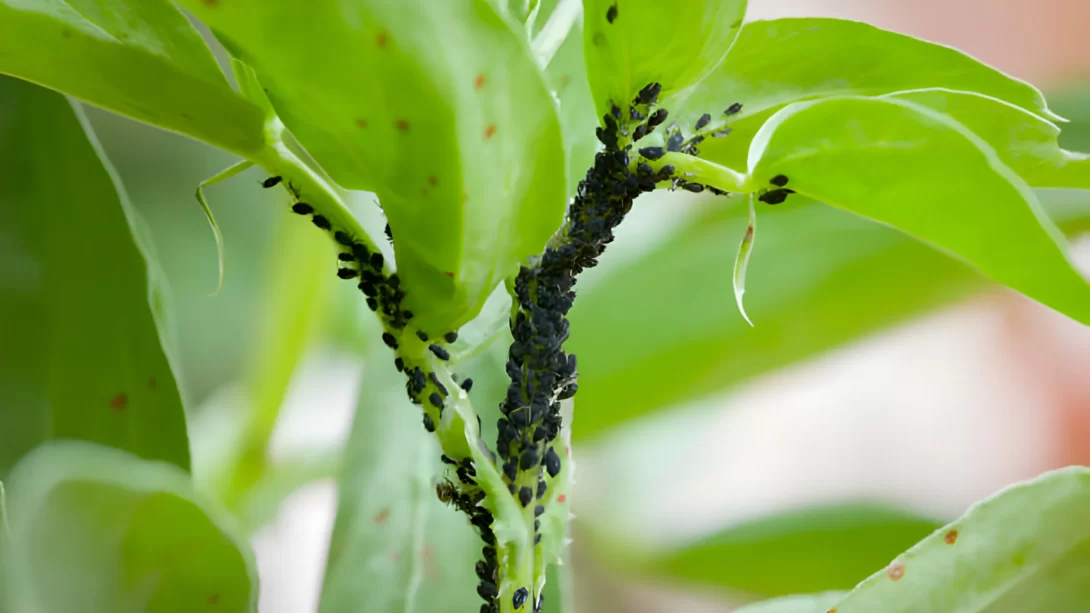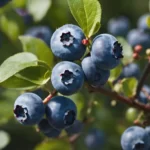Aphids, often spotted in gardens and on a variety of plants, are a common concern for gardeners and homeowners. These small, sap-sucking insects can be found in almost any habitat that contains plants. The purpose of this article is to delve into the relationship between aphids and humans. We’ll explore whether aphids are harmful to people directly or indirectly, and discuss the broader impact they have on our environment and daily lives.
Aphids
Aphids are tiny, soft-bodied insects, typically measuring 1 to 10 millimeters in length. They are known for their varied colors, which range from green and black to pink and yellow. Aphids are born live in the spring and summer and may lay eggs in the colder months. They feed by sucking sap from plants, which can lead to various issues for the plants themselves.
Aphids play a significant role in ecosystems. They are a key food source for many beneficial insects, like ladybugs and lacewings, and also have a unique relationship with ants, which farm them for their honeydew. Despite their prevalence, there’s a common misconception that aphids are directly harmful to humans, which this article will address.
Aphids and Plant Health
The primary concern with aphids is their impact on plant health. These insects feed on plant sap using their piercing mouthparts, which can weaken and sometimes kill the plant. Aphids are particularly notorious for attacking young shoots and tender leaves, causing them to curl and distort.
When aphids feed, they excrete a sticky substance known as honeydew. This honeydew can lead to the growth of sooty mold on plants, which, while not directly harming the plant, can block sunlight and affect photosynthesis. Additionally, aphid infestations can attract other pests, such as ants, which feed on the honeydew.
Potential Risks to Humans
A crucial question is whether aphids pose any direct health risks to humans. Generally, aphids are not harmful to people. They don’t bite, sting, or carry diseases transmissible to humans. However, there are isolated instances where people might experience allergic reactions to aphids, especially when exposed to large numbers of these insects. Such reactions are quite rare and typically mild.
Another concern related to aphids and human health is the use of chemical pesticides. Many gardeners and farmers resort to pesticides to control aphid populations. These chemicals, if not used correctly, can pose health risks to humans, particularly through accidental ingestion or exposure. Therefore, it’s important to use pesticides responsibly and explore safer, more natural alternatives when possible.
Indirect Effects of Aphids on Human Activities
Aphids can have significant indirect effects on human activities, particularly in agriculture and gardening. Their feeding habits can reduce the aesthetic and commercial value of ornamental plants and significantly impact crop yields. In agricultural settings, aphid infestations can lead to reduced harvests and, consequently, financial losses.
Moreover, aphids can act as vectors for plant diseases. They can transmit viruses from one plant to another, exacerbating their impact on agricultural productivity. This transmission occurs when aphids feed on an infected plant and then move to a healthy one, spreading the virus. Such diseases can be challenging to control and can have far-reaching effects on food supply and quality.
Management and Control of Aphids
Effectively managing aphid populations is crucial for minimizing their impact on plants and avoiding the use of harmful chemicals. Here are some recommended strategies for controlling aphids:
- Natural Predators: Introducing or encouraging natural predators like ladybugs, lacewings, and hoverflies can help control aphid populations. These beneficial insects feed on aphids and can be an effective part of a natural pest control strategy.
- Physical Removal: For small infestations, physically removing aphids from plants can be effective. This can be done by gently wiping them off with a damp cloth or spraying them off with a strong jet of water. Be careful not to damage the plants in the process.
- Homemade Sprays: Homemade solutions like soapy water spray can deter aphids. Mix a small amount of mild dish soap with water and spray it directly onto the aphids and affected plant areas. The soap disrupts the aphids’ outer layer, leading to dehydration.
- Neem Oil: Neem oil is a natural pesticide that can be effective against aphids. It works by disrupting the feeding and reproductive cycles of the insects. Neem oil is less harmful to beneficial insects and humans when used correctly.
- Chemical Pesticides: If natural methods are not effective, chemical pesticides can be used as a last resort. Choose products specifically designed for aphids and follow the application instructions carefully to minimize risks to human health and the environment.
Conclusion
Aphids, while not directly harmful to humans, can have significant indirect effects on our activities, particularly in gardening and agriculture. Their presence can lead to plant health issues, reduced crop yields, and the potential spread of plant diseases. However, there are a variety of ways to manage and control aphid populations effectively and safely.
It’s important to consider natural and less harmful methods first, reserving chemical pesticides for more severe infestations. By understanding aphids and implementing responsible management practices, we can coexist with these insects while protecting our plants and our health. Remember, maintaining a balanced ecosystem is key to sustainable gardening and agriculture practices.



